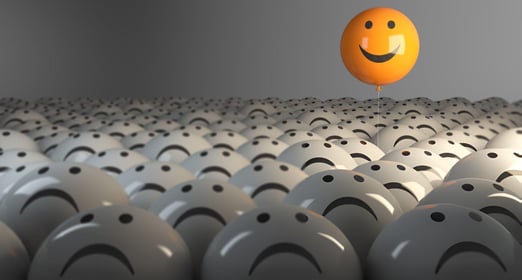HOW TO HANDLE NEGATIVE THOUGHTS ?
DID YOU KNOW: Negative thoughts are actually good for our well-being.
We spend a lot of time in our mind, stressing about what will happen in the future or focus on the aspects of the life that make us unhappy or unsatisfied. We get negative thoughts like, I’m not good at something, I cant do this, he/she is so much better than me, and so on. These negative thoughts prevent you from enjoying and cloud your judgements from focusing on what is important. This thinking pattern might be affecting your health, relationships and/or career.
Hmm.. so what is so “good” about negative thoughts?
For starters, suppressing ideas prevents us from correctly evaluating our life experiences. If we don’t allow ourselves to experience the lows, the enjoyment from the highs is diminished.
“Attempting to conceal ideas might backfire and possibly reduce our sense of satisfaction.”
Secondly, negative emotions are maybe important for our survival. The negativity related to health issue, or a relationship, or work, makes it clear to us that there’s a problem. It alerts us to the things that require our attention and that we need to change it.
“The survival value of negative thoughts and emotions may help explain why suppressing them is so fruitless.”
Finally, suppressing thoughts and emotions can be bad for our physical and mental health. It can cause stress, anxiety & depression.
So here’s a question: Is it getting difficult to handle your negative thoughts?
If yes, then instead of removing them let’s learn how to handle them in a healthy way. With the help of the keys that I have mentioned below and a little bit of practice I believe anyone can handle negative thoughts:
Recognize distorted thinking: Take a step back and recognize the distorted thoughts. Our minds have clever and persistent ways to convince us that something is really wrong. These inaccurate thoughts reinforce negative thoughts. If you’ll recognize them, you’ll learn to challenge them. Here are some common thought distortions:
Black and white thinking: Seeing everything as one way or another, and not thinking the situation in a different perspective.
Personalizing: Assuming you’re to blame for all the things that goes wrong.
Filter thinking: Choosing to see/ focusing on only the negative side of a situation.
Catastrophizing: Assuming the worst possible outcome is going to happen.
Time to challenge these negative thoughts: Whenever you have a distorted thought, stop and evaluate if it is correct. Think about how you would react if a friend told you such a thing. You will probably offer a good counter-argument to the person’s negative views. Apply the same logic to your thoughts. Ask yourself if you’re assuming the worst will happen or blaming yourself for something that has not gone the way you wanted. And then consider other possible outcomes or reasons that something turned out differently than you hoped.
Acceptance: Rather than backing off from negative emotions, accept them. Acknowledge how you’re feeling without rushing to change your emotional state. Accepting negative thoughts and emotions instead of suppressing them can actually lead to greater clarity and understanding of our life. We have to know and accept the rough to make the smooth that much better. Psychologists say that trying to constantly be upbeat can make us unhappy: We wouldn’t enjoy life as much if we didn’t feel both highs and low (after all, roller coaster rides are fun :D).
Many people find it helpful to breathe slowly and deeply while learning to tolerate strong feelings.
If you feel overwhelmed, you can express your feelings by writing it in a journal/diary.
You may also try doing mindfulness exercises which will help you become aware of your present experience without passing judgment on it. One way to train yourself to adopt this state is to focus on your breathing while meditating and simply acknowledge any fleeting thoughts or feelings
“It is impossible to avoid negative emotions altogether because to live is to experience setbacks and conflicts,” Sauer-Zavala
Learning how to cope with those emotions is the key. Once you accept the thoughts and feelings you will start seeing the problems with greater clarity and proceeded down the path to recovery.


